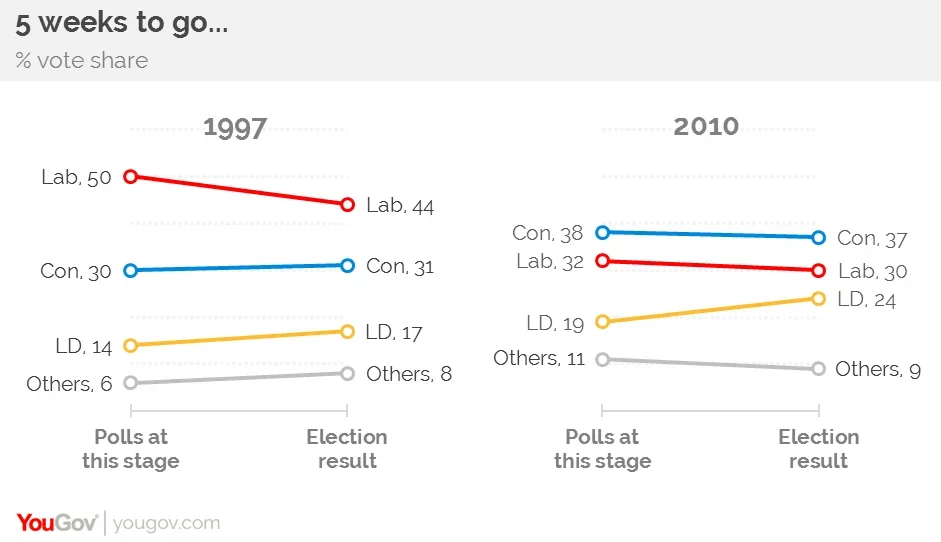Will the next five weeks of electioneering make any difference, or are the parties wasting their time, money and shoe-leather?

At this stage in the 2010 campaign, YouGov reported a six point lead for the Conservatives. This was close to their final seven point margin of victory. Yet it’s wrong to say the campaign made no difference. During the first half of April, the Tories extended their lead, touching 10 per cent in three YouGov surveys.
Then came the first television debate, and the eruption of Cleggmania. Overnight, Lib Dem support jumped to 30 per cent. They took more votes from the Tories, whose lead over Labour halved to five per cent.
Gradually, Lib Dem support subsided. Nobody can prove how different the election would have been without the debates and the Lib Dem surge; but I agree with those Conservatives who feel that they would have enjoyed a bigger lead over Labour and probably won enough seats to govern outright.
If we look back further to 1997, the last time a Conservative Prime Minister fought an election campaign, we see again a campaign lift for the Lib Dems, though rather smaller than in 2010. Labour dropped back six points, while the Tories, though defeated by a landslide, actually narrowed the gap during the campaign.
So past elections show that loyalties can change. Indeed, these overall figures understate the degree of churn. Panel studies, in which the same people are questioned through election campaigns, find that it is normal for as many as one in four electors to change their mind at some point, either switching parties or moving to or from the ranks of the don’t knows.
Normally, the components of this churn largely cancel each other out, so polls give the impression that little is changing. But from time to time there are big campaign movements. Not only did this happen with Cleggmania; in 1983, Labour started off with almost twice as much support as the Liberal/Social Democrat Alliance, and ended up only fractionally ahead; and when Edward Heath called the February 1974 election, the Conservatives started with a comfortable six point lead, yet ended up being ejected from office.
Will this year’s election see big or small net movements between the parties? Ask me again on May 8. But such is the closeness of the race, and the impact of tiny movements in votes on the number of seats that each party wins, the parties are right to expend all the time, money and shoe-leather they can afford.
This commentary first appeared in The Times






